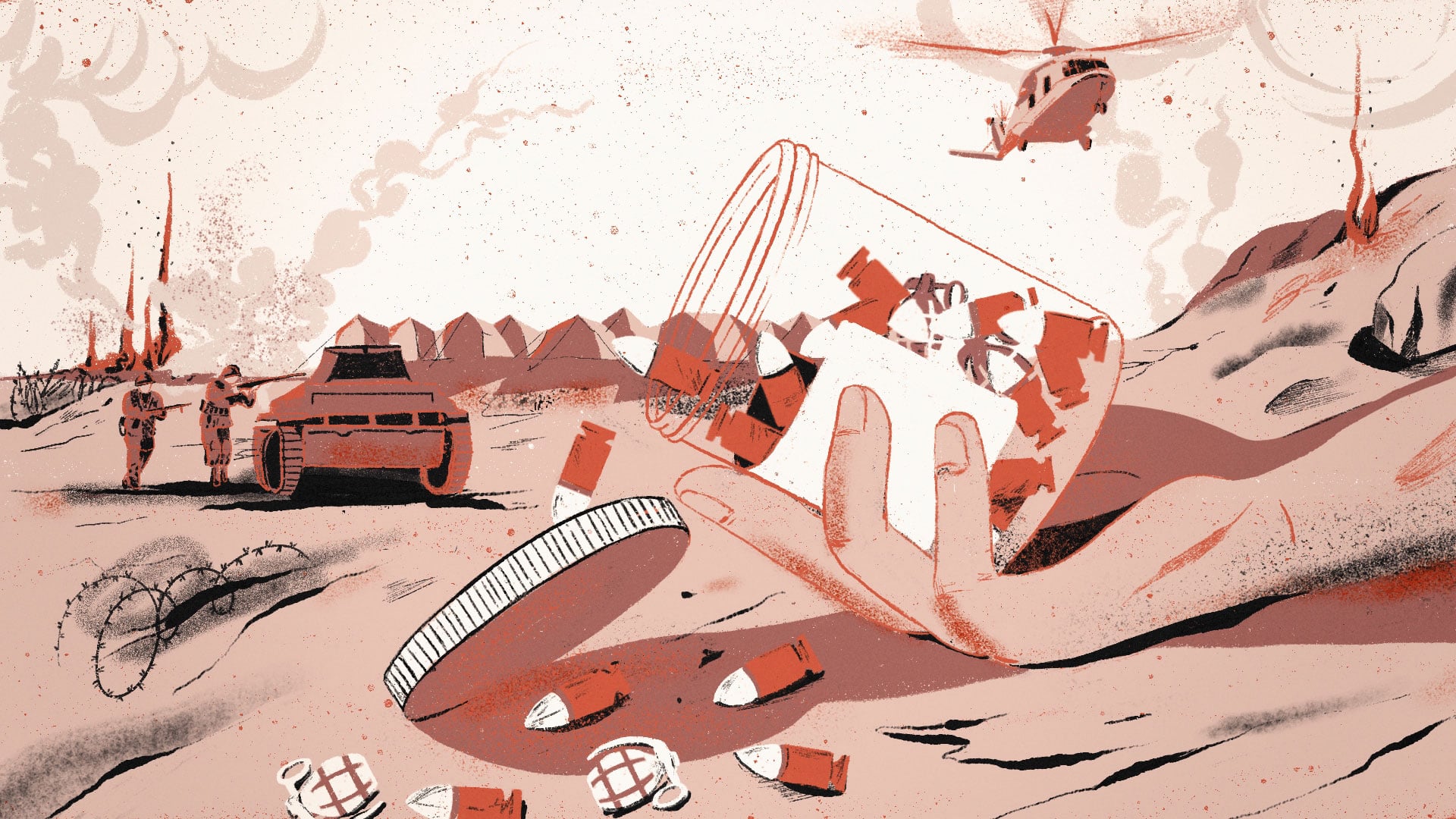
War Addicts
The fact of pretending that a war on drugs is being waged is still paradoxical, when historically wars have been perpetrated with armies addicted to some substance.
From the beginning, masculinity disguises the fear and the anxiety of going into combat through consumption. And not only that: also it was used to knock out the enemy. The Chaldeans made smoke of hemp to lull the adversary, with uncertain results. The US military fantasized about bombarding Russians with LSD, during the cold war.
In the 20th century, morphine, opium or marihuana were used to mitigate the trauma in the delicate office of killing oneself collectively for some cause. Cocaine and amphetamines were consumed to evade tiredness and sleep.
Courage does not exist, at least in the mandatory havoc mode, artificial help is needed: drugs are the perfect incentive to get in and out of hell.
No paradise
The militias of all the times have used some substance to dominate the fear and to be capable to kill or to die. Lukasz Kamienski, in his book Shooting Up. A History of Drugs in War goes back to the Homeric heroes consuming opium and wine, to the Vikings with hallucinogenic mushrooms, to the role of rum in the English conquests, to the hashish-smoking Napoleon troops in Egypt, and more close to the Japanese kamikazes with their pills assault, that is, methamphetamine.
The Nazis, pioneers in supplying amphetamine to invade Poland, tried a new substance, pervitin, which reduced the appetite and provided a feeling of well-being. Pharmacological research began in 1938. In the advance on the Netherlands and France, the German soldiers would have received more than 35 million pills of pervitin and a modified version, the isophan. But the consumption abuse was translated into insubordinations and had to be restricted. The troops, exceedingly violent, stopped receiving the drugs. The pills were intended for elite soldiers.
As soon as the British discovered that Nazi soldiers were carrying pastis, they set out to do the same and, under the excuse of fatigue, began supplying their pilots with bencedrin. The USA followed the example of Great Britain. Its pilots, well placed, bombed Germany and Japan. To the ground troops took benni, as bencedrina was familiarly known. The Russians, vodka, for an economic question. And not to innovate. Instead of pills, thousands of soldiers. However, in his confrontation with the Finnish army, alcohol proved insufficient. Allied since 1941 to the Nazis, the Finnish government would have provided its soldiers with 850,000 pervitin tablets.
War is the drug
Thus says Kamienski: “Homo furens is a homo narcoticus.” The Vietnam War is “the first true drug war.” In 1973, when the USA withdrew its troops, 70% of the soldiers were using something: heroin, morphine, marijuana, opium, etc. The army established Operation Golden Flow, a mandatory urinalysis, to check the cleanliness of its soldiers before getting home.
Masculinity in the Civil War
Jorge Marco, professor of Spanish Politics and History at the University of Bath, points out that “neither the Republican Army nor the rebel army systemically administered morphine, cocaine or amphetamines to soldiers to reinforce their performance in combat.” The reasons, in addition to the lack of laboratories and resources, were controversial: “Both Armies assumed a moral discourse around the new masculinities that since the beginning of the 20th century had been spreading against drug use, which were attributed to bohemians, decadent aristocrats, effeminate, homosexuals and prostitutes.”
Killing was no problem, it was a test of masculinity. But very clean, please.
Another allowed
As I write these lines, I read on all the news portals how the use of psychotropic drugs has increased in the world due to the pandemic. The fear of contagion, of being isolated, of dying; loss, loneliness and uncertainty translate into insomnia, anxiety and anguish. Fear does not need a prescription. Self-medication and alcohol consumption have skyrocketed. In the privacy of your cave who is going to forbid you to consume. Consumption refers us to this sick capitalism that we suffer from. Consume to be able to consume products and services, from the tele-inhabited claustrophobia of your bourgeois home.
What not
I conclude: as long as the providers are the laboratories or the armies, narcotics do not represent a problem for anyone. The matter gets complicated by private manufacturing and distribution. When others benefit. The business moves millions, we know. But how to combat what is promoted, with the same weapons?
War on drugs is a nonsensical sentence. Killing so that others don’t kill is a Pataphysical idea that does not produce laughter, but terror. A tautology that leads nowhere, except to expose their condition.